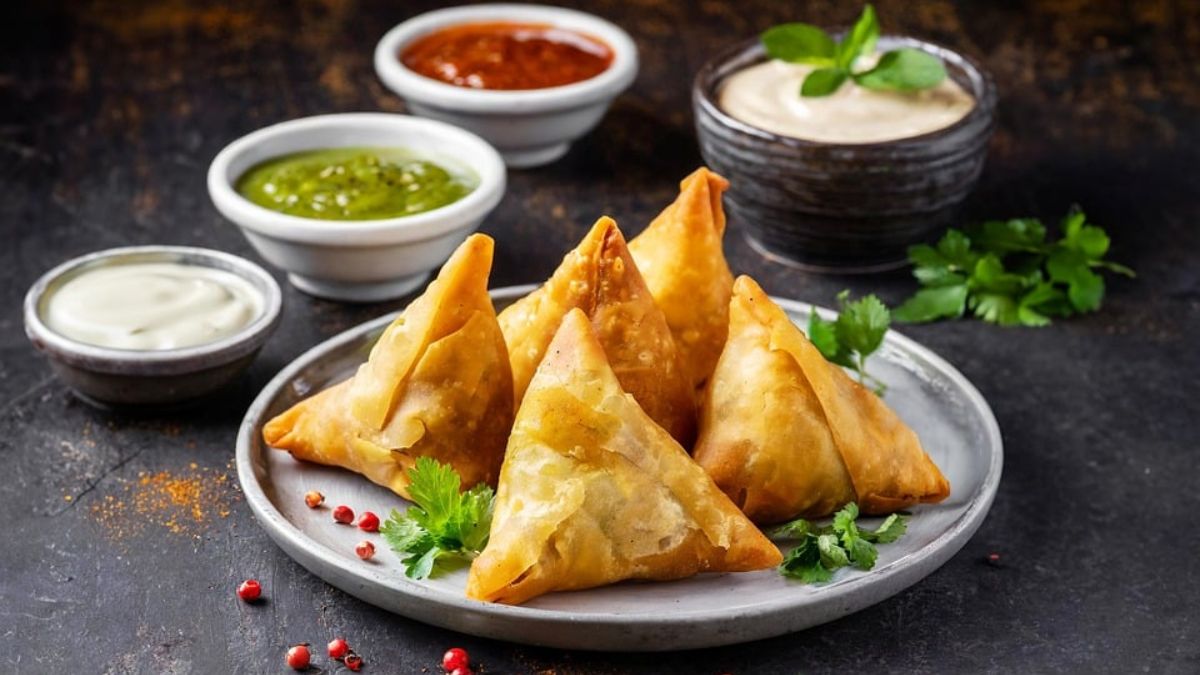Are you among those who cannot resist India’s beloved snack samosa? Are cakes and cookies your comfort food? Then it is high time to read this report.
A first-of-its-kind clinical trial has revealed a link between foods rich in advanced glycation end products (AGEs), including ultra-processed and fast foods, and India’s status as the world’s diabetes capital.
The government-funded study, conducted by researchers from the Indian Council of Medical Research (ICMR) and the Madras Diabetes Research Foundation (MDRF), was recently published in the International Journal of Food Sciences and Nutrition.
Let’s take a closer look.
How was the study conducted?
To conduct the clinical trial, 38 adults who were either overweight or obese but non-diabetic were divided into two groups.
While one group was given a low-AGE diet for 12 weeks, the second was fed a high-AGE diet over the same period.
AGEs are harmful compounds formed when protein or fat combine with sugar in the bloodstream in a process called glycation, as per Healthline.
The high-AGE foods are those prepared using different cooking methods such as roasting, deep-frying and shallow-frying. The low-AGE foods include those cooked by boiling and steaming.
What the study found
The study revealed that participants who consumed low-AGE foods showed improved insulin sensitivity and lower risk of future type 2 diabetes, compared to the high-AGE diet group.
Insulin sensitivity refers to how well cells respond to insulin, a hormone produced by the pancreas that helps regulate blood glucose (sugar) levels.
After 12 weeks, the researchers discovered a significant rise in the insulin oral disposition index, which measures insulin sensitivity, in the low-AGE diet group, compared to those who consumed the high-AGE diet.
The study also shows that consuming high-AGE diet can lead to inflammation in the body, an underlying cause of diabetes.
“This is because glycation - a non-enzymatic chemical process in which a sugar molecule binds to a protein or lipid molecule - can result in harmful reactions in the body,’’ according to the paper.
Foods with high AGEs include chips, fried chicken, samosas, pakoras, bacon, beef, baked items like cookies and cakes, roasted nuts, sunflower seeds, and processed foods like mayonnaise.
Researchers say that overweight (those with a body mass index, or BMI, of 25 or higher) and obese (with a BMI of 30 or more) people can bring down the oxidative stress in their bodies by taking foods low in AGEs, such as fruits, vegetables, whole grains, and low-fat milk.
Oxidative stress is an imbalance of free radicals and antioxidants that can trigger inflammation and cell damage.
“This dietary intervention has the potential to mitigate the burden of obesity-linked type 2 diabetes,” the study’s authors noted.
Why the study matters
This is a groundbreaking study that examines how AGE-rich diets are fuelling India’s diabetes crisis.
“The study for the first time in India revealed that low AGE diets could be a potential strategy to reduce diabetes risk,’’ the researchers said.
Previous studies have linked the consumption of highly processed foods, rich in fat, sugar, salt and AGEs with an increased risk for chronic diseases.
The ICMR study fills the gap in data on AGEs in Indian diets. This data is necessary as Indians are prone to insulin resistance, type 2 diabetes, and cardiovascular diseases, as per the researchers.
Dr V Mohan, chairman, MDRF, and one of the authors of the paper, told ThePrint that understanding foods high in AGEs and the cooking processes that cause them to be rich in AGEs can help in fighting India’s diabetes crisis.
As many as 10.1 crore Indians have diabetes, as per a 2021 study. “The rise in the diabetes epidemic in India is primarily driven by obesity, physical inactivity and eating of unhealthy diets which are rich in AGEs,” he said, as per NDTV.
According to Dr Mohan, the findings exhibit, through the Indian context, that healthy foods such as fruits and vegetables and items that are not processed have low AGEs.
“Also, if you boil the food and don’t fry, grill or roast it, or add a lot of oil, ghee or other lipids to it, you can keep the dietary AGE low,” Dr Mohan told the digital news outlet.
“By adopting healthier diets such as green leafy non-starchy vegetables, fruits, boiled foods rather than fried ones and cutting down on bakery foods and sugary foods one can have diets which are low in dietary AGE’s and thus lower the risk of type 2 diabetes,” he was quoted as saying by The Hindu.
With input from agencies


)

)
)
)
)
)
)
)
)



